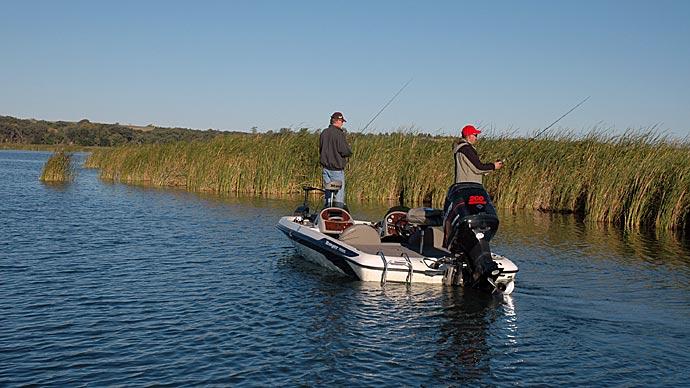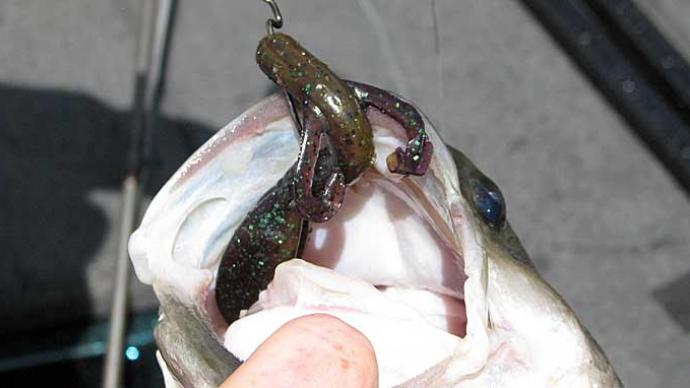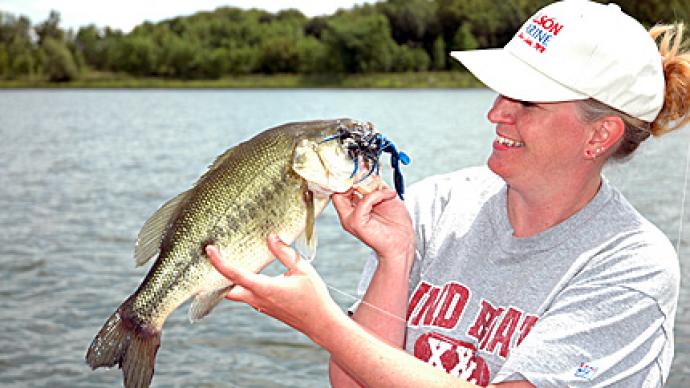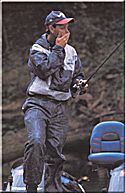
Tournament fishing is an emotional sport. Those anglers who regularly compete in tournaments are often passionate about fishing and the competition. Many forego the luxuries of life to be out on the tournament trail.
This passion also causes the tournament competitors to undergo a wide array of mental emotions, from pure elation to total frustration. These emotional fluctuations, if left unchecked, can hinder an angler's ability to win a tournament.
The angler who learns to control their emotions has a greater chance of taking tournament money than the angler in psychological turmoil. And the best way to gain control is to recognize the problems.
Pre-Tournament Jitters
Remember when you asked your high school sweetheart out for the first time? The night before, your stomach felt like you just ate a bowl of hot chili peppers. You lay awake through the night, fretting over the upcoming date.
The following day, you felt exhausted, weak, and unsure. Your knees trembled. The butterflies in your stomach went wild as you approached with your proposal. You wanted to run, but it was too late. At the height of your terror, you asked for the date. The "yes" answer provided instant relief. As you walked away, the feeling returned in anticipation of the night's date.
Tournament fishing is not all that different. Many anglers undergo pre-tournament jitters - or anxiety attacks, as psychologists call them. In severe cases, the over-anxious angler may experience nausea just before blast-off.
Pre-tournament anxieties can adversely affect anglers in different ways. Anxiety can completely erase your confidence level. An afflicted angler often frets about the other competitors and stops thinking about his strategy. You begin to wonder if you're as good as the next angler. Memories of past tournament losses also begin to fill your head. With such thoughts, you no longer have the confidence to win.
This emotional upheaval can destroy your concentration. The brain cannot focus on two main points at the same time. If you worry about the other anglers, fret over the fish, and wonder if your boat will run, it is impossible to concentrate on your immediate task - catching fish.
Anxiety is a cruel emotion. To overcome it, you need to be cold and hard. You must block out all surrounding interference. For some, that is a seemingly impossible task. Anglers facing this challenge can benefit from confidence-building programs. Podcasts, videos, and self-help seminars are often all one needs to learn how to control the pre-tournament jitters. In severe cases, try visiting sports psychologists. Psychologists have the expertise to help over-anxious anglers control their problems.
The Adrenaline Rush
You're running down the lake to your first stop of the day. You stop, make a cast, and a nice largemouth bass immediately comes into the boat. The next cast produces a second fish.
Tournament glory runs through your mind. When the third fish comes aboard, your mind is racing faster than your heart. You almost unnoticeably begin to make more daring casts. You retrieve your lures faster. Even your basic movements become hastened and seemingly uncoordinated. Your adrenaline level is rising.
Adrenaline, a chemical compound produced by the adrenal gland that stimulates the brain, is not a harmful chemical. After all, things are going the way you want them to. You are catching fish - may be enough to take a tournament check. But adrenaline has its detriments.
Let's say the bass are holding tight to structure. A few active fish will hit crankbaits, but the bigger fish are tight-lipped and hard to catch. If you are racing past these fish, living off your adrenaline, you could miss the subtle changes needed to catch bigger fish.
Watch a college bowl football game to see adrenaline rush problems in action. In the first quarter of the game, the younger players "get pumped up" to play. But they tend to make lots of mental errors. They line up wrong, they miss tackles, and they blow coverage. The more experienced players usually don't make those mistakes. Time on the field has taught them to control their emotions and to use their adrenaline to improve their performance.
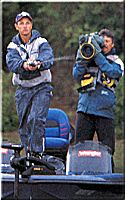
Tournament fishing parallels football. Young or new tournament anglers get easily caught up in the heat of the moment and start making mental mistakes. They rush things, re-changing lures too frequently or running the boat too close to their fishing area. Afflicted anglers often run from spot to spot, seemingly without purpose. They will eventually settle down, but that may only occur in the second half when it is too late to catch up.
Conversely, long-time professional anglers maintain cool, levelheaded approaches to their fishing day. They don't panic, and they don't rush things. Instead, experience has taught them to focus on the fish and not on themselves.
Occasionally, experienced anglers still have problems controlling their adrenaline rushes. In this case, relaxation exercises often correct the problem. Controlled breathing, counting, and other relaxation techniques are all standard methods to keep your mind under control.
You might want to listen to relaxing music or podcasts while on the water. Again, seminars and sports psychologists may be extremely useful if you have problems relaxing on the water.
Frustration
The opposite of the adrenaline rush is frustration. During a tournament, things can and do go wrong. Motors break down, rods snap, bass break free, and fish don't bite. When those things happen, frustration sets in, and an angler's confidence can go awry.
Frustration, however, is controllable. This problem is the easiest one to control. And it all starts with a good mental attitude. If you can maintain an upbeat attitude, you can defeat the frustration bug.
Frustration is caused by two factors - equipment and environment. A preventive maintenance program controls equipment problems, such as motor breakdowns, and tackle breakage. If you take care of your outboard, change fishing line and keep your tackle together, your gear won't fail you. Problems can still occur, but at least you will keep them to a minimum.
You can't control the environmental factors. Weather and fish only sometimes cooperate, especially during a tournament. And when it begins to rain, it usually pours. Experience can help you overcome environmental frustrations. The more problems you encounter on the water, the better prepared you are to deal with them. Until you reach that experience level, you will have to rely on your mental outlook to control your frustration.
Top professional anglers don't let problems bother them. They try to use problems as learning tools. For example, hooked bass get loose for a variety of reasons. The professional angler determines why the fish got off and adjusts their tactics accordingly. If the motor breaks down, a thinking angler remembers why and increases the maintenance frequency on that part. All these seemingly simple adjustments can prevent frustration from ruining your fishing day.
Weather also can add to the frustration problem. As someone once said, "There is no such thing as bad weather, just different." To overcome weather frustration, be prepared with the necessary clothing to compensate for climatic changes. If it's cold, bring more clothing. In wet weather, wear the best rain suit you can afford.
Euphoria
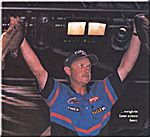
It's a great feeling when everything goes according to plan. The fish are coming in steadily, your catch weight is increasing, and mistakes no longer plague your day. You are in that groove - or the "Zone," as many professional athletes call it. Euphoria is a better term.
There are no psychological problems with euphoria. It's a great feeling often rewarded with a trip to the winner's podium. You feel good about yourself, and you feel invincible. The real problem with euphoria is holding onto it throughout the season.
While it is impossible to keep that high feeling during the drive to the next tournament, you can keep your competitive edge. Look at how Tiger Woods tore up the professional golf tour. Or how Denny Brauer and David Walker kept their focus during tough tournament seasons. Their secret is riding their euphoria - or, more appropriately, maintaining the competitive edge caused by euphoria - through the entire season.
One can never live off the laurels of the previous tournament - or the previous day in a tournament after making it to the next round. Your goal is to maintain your focus on the fish. Approach each day with the same intensity as the next. This intensity keeps your mind sharp, which is the basis for achieving that euphoric feeling.
Insecurity
Insecure anglers have a disadvantage when it comes to tournament fishing. If you don't believe you can win, you won't. Also, you become vulnerable to the "head games" often played along the trail if you have insecure feelings.
Dock talk about big fish, super patterns, and other fishing chitchats often is designed to "psyche out" other anglers. Be very careful how you process this information. Five-pound bass at the dock often translate to 2-pound fish on the water.
The best way to avoid falling into the head game talk is to keep your conversation away from fishing. Just say "good morning" and go about your business. If you are compelled to ask another competitor a question, ask how the boat is running or how the family is doing. Don't ask a fishing question. You might get more information than you need or totally inaccurate information.
Your non-fishing questioning does two things in your mind. First, it keeps you focused on your fishing rather than thinking insecurely about someone else's fishing. The second thing is your barrage of non-fishing questions puts you in control of the conversation. You are doing the asking, not the answering. While it is a small step in controlling your situation, this controlled mindset will carry over to your fishing.
Control is the key to overcoming insecurity. When you can control your thought process, you can control your fishing techniques. And total control on the water is the common denominator among the top FLW Tour professional anglers.
There is an old adage of ten simple two-letter words. It's a code of life that applies to tournament fishing. "If it is to be, it is up to me." Anglers following that philosophy will make good things happen and overcome the psychological problems that may sometimes pop up along the tournament trail.
Content provided by Bass Fishing Magazine, the official publication of FLW Outdoors


